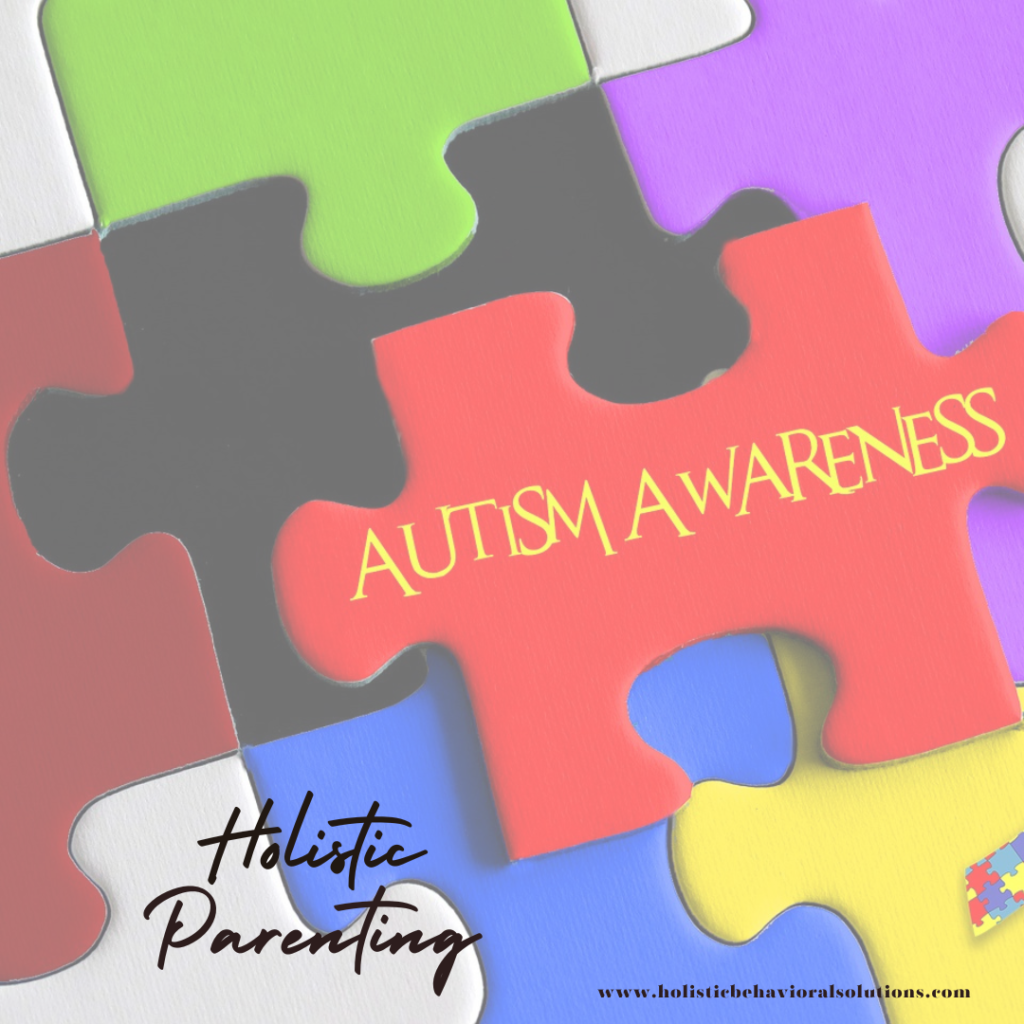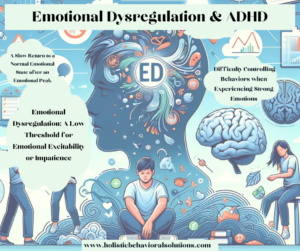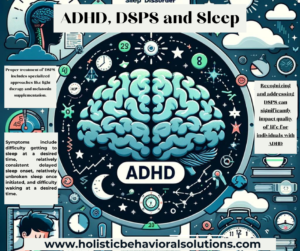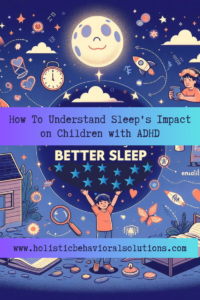

Fostering Holistic Well-being in Children: A Parent’s Guide
As parents, our primary goal is to ensure our children thrive in a supportive and nurturing environment. Holistic Behavioral Solutions for Parents offers a comprehensive approach to addressing the physical, emotional, and mental needs of children, ensuring they grow into their best selves. This guide delves into practical strategies that can significantly impact your child’s overall well-being.
The Foundation: Consistency and Routine
A consistent daily routine is crucial for children, providing a sense of security and stability. This consistency should extend to all aspects of their lives, including sleep, nutrition, and activities, regardless of weekends, holidays, or vacations. Children require at least 9 hours of sleep each night to support their developing bodies and minds, allowing adequate rest for mental processing and growth.
Children like adults have physical needs in order for them to be their best selves; A good practice to follow is to keep the same regimen on a daily basis with limited deviations for holidays, weekends, vacations etc. Children need a minimum of 9 hours of consistent sleep nightly as their bodies and minds are growing and forming daily. The mind needs a chance to process all that it has taken in during the day and adequate rest is the ideal way to do this. Bedtime needs to be consistent.
Nutritional Balance and Mindful Observation
Nutritional Consistency: Adhering to a regular schedule for medications, dietary restrictions, and vitamin regimens is essential. The American Pediatric Association emphasizes the importance of consistency in administering vitamins and medications to maintain the body’s balance and support mental health.
Mindful Eating: Be attentive to how different foods affect your child. Some ingredients can exacerbate mood swings and irritability. Maintaining stable blood sugar levels and consistent medication schedules, coupled with essential vitamins like D3, can significantly improve your child’s mood and well-being.
Understanding Triggers and Emotional Needs
Observing your child’s reactions to external stimuli can provide valuable insights into their needs and potential triggers. Identifying and mitigating these triggers can prevent meltdowns and conflicts, fostering a calmer and more supportive environment. Medications, dietary restrictions and vitamin regimens should be consistent.
The American Pediatric Association recommends that all vitamins and medications for children are given as prescribed at the same time every day/ night. The body is a resilient instrument however the mind is sensitive to changes in sugar, additives, preservatives etc.; Each individual responds differently to food which can be a great source of healing for the mind and body or a great source of pain. To alleviate mood swings and irritability try to keep blood sugar stable and medications consistent and don’t forget to take your vitamin D3.
Fostering Emotional Connections and Physical Activity
Quality Time: Dedicate time each day to connect with your child without distractions, encouraging them to express their thoughts and feelings. This open communication is vital for understanding their internal world and addressing any concerns. Children and adults focus better when distractions are limited; try to carve out time each day for just you and your child to communicate without distractions about their emotional world. The internal world is a rich and complex place and if we don’t allow our children to share with us what is on their mind, we are unable to rectify any issues that may come up later.
Encouraging Movement: Daily physical activity is not just beneficial for your child’s health but also crucial for their mental well-being. Activities like walking, dancing, or playing on a mini-trampoline can satisfy their sensory needs and promote gross motor skills development. Children NEED physical activity every day; it’s good for their bodies and their minds to let loose and practice their gross motor skills. We can benefit from walks, running, dancing or rebounding on a mini-trampoline as this satisfies our sensory needs in a meaningful way every day
Positive Reinforcement and Modeling Behavior
Celebrating Strengths: Focus on recognizing and praising your child’s positive behaviors. Positive reinforcement enhances self-esteem and encourages the continuation of those behaviors. Try to observe your child periodically throughout the day and be sensitive to his/ her external triggers; perhaps there are foods, people or situations which cause your child to act out. Many parents can alleviate meltdowns and conflict by removing the precedent trigger. Your child like you needs someone to be sensitive to his/ her emotional and physical needs and in your role as a parent YOU are in the most effective position to do so.
Leading by Example: Model the behaviors you wish to see in your child. If they deviate, gently guide them back on track with clear explanations and demonstrations of the desired behavior. Be the change you want to see…People are good at pointing out behaviors that they dislike but rarely encourage the behaviors that are being done well. In order to extinguish behaviors that are problematic, ignore/ limit them while focusing heavily on what your child is doing right.
Children like adults thrive on positive reinforcement and praise. Praise your child in a meaningful way daily. Their self-esteem grows and you grow as a parent. Parents should MODEL the behaviors for children. If they veer off course, SHOW them how you want them to behave, explain in a calm and rational manner and repeat as needed. We ALL need reminders and they are still learning.
Communicating with Respect and Limiting Negative Influences
Respectful Communication: Use appropriate verbal and body language, avoiding intimidation or disrespect. Remember, children learn how to interact with others based on their experiences at home. Use appropriate verbal and body language when communicating with your children (and others). Don’t tower over them and raise your voice, don’t use profanity, don’t scream because next week, month, year, and decade they will be screaming at you. Get down on their level physically, if possible and speak respectfully. People respond to you based upon how you train them. Whenever possible, limit cursing in front of kids and NEVER curse at kids; it’s disrespectful.
Mindful Media Consumption: Be vigilant about the media and influences in your child’s environment. Limit exposure to content or individuals that do not align with the values you wish to instill. Limit negative external influences around your child such as TV/ Radio/ People that do not practice the desired behaviors. Children are little sponges and they pick up and repeat all they are exposed to. Parents need to consistently check the content of media and people in their children’s lives; if an influence is not positive, by default it can be seen as negative and will negatively impact your child.
Special Considerations: Autism Awareness and Support
For parents navigating specific challenges, such as autism, maintaining a detailed log of behaviors and concerns can be invaluable. This record can provide crucial insights during therapy sessions or consultations with professionals. If you are having specific issues with your child, keep a log and bring it up in your session.
Holistic Parenting for a Brighter Future
By adopting a holistic approach to parenting, we can create an environment that supports our children’s comprehensive development. From consistent routines and mindful nutrition to emotional support and positive reinforcement, every aspect of our parenting strategy contributes to their well-being. Embrace these principles to guide your child towards a healthy, happy, and fulfilling life.
Seeking Further Guidance? If you’re facing specific challenges or simply seeking to enhance your parenting approach, our sessions provide tailored support and strategies. Contact us to learn how we can work together to nurture your child’s holistic well-being.
Holistic Parenting: The Holistic Store
While we are thinking that through, boost your connection from the inside out with our wellness supplements and supplies. Check out our store for products that help you feel your best, making it easier to open up and connect on a deeper level.


